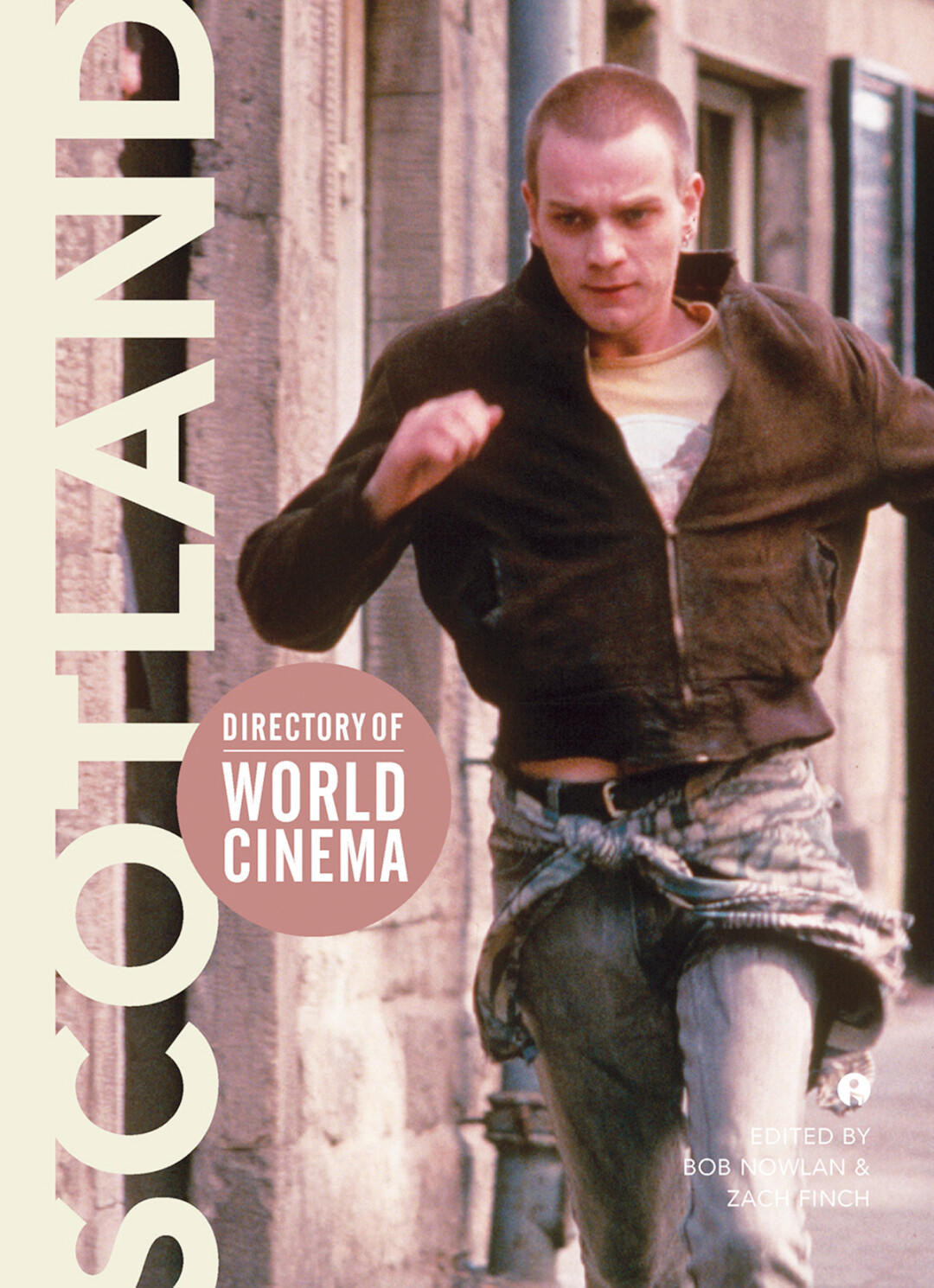Great Scots!
UWEC professor’s definitive book on Scottish cinema
V1 Staff |
 If you happened to sit in on one of Bob Nowlan’s Scottish Film courses at UW-Eau Claire, you’ll quickly realize that this guy is an absolute expert on the topic. He not only looks at the particular style of Scottish films through an academic lens but also from the viewpoint of a huge fan. Recently, with the help of some former students, Nowlan put his expertise down in writing for the definitive Scottish installment in the Directory of World Cinema Series. We recently caught up with Nowlan to chat about some of his favorite Scottish films and why they have a huge impact on the global landscape of film.
If you happened to sit in on one of Bob Nowlan’s Scottish Film courses at UW-Eau Claire, you’ll quickly realize that this guy is an absolute expert on the topic. He not only looks at the particular style of Scottish films through an academic lens but also from the viewpoint of a huge fan. Recently, with the help of some former students, Nowlan put his expertise down in writing for the definitive Scottish installment in the Directory of World Cinema Series. We recently caught up with Nowlan to chat about some of his favorite Scottish films and why they have a huge impact on the global landscape of film.
Volume One: Obviously, you’ve got to be a huge fan of Scottish filmmaking since you actually wrote the book on it. When did you first fall in love with that style of filmmaking?
Bob Nowlan: I first became interested in an intensive exploration of Scottish cinema as a result of my first visit to Scotland, in the summer of 2003. I fell in love with Edinburgh and Glasgow on that first visit and was both sad to leave and eager to return (which I have in fact done many times). Scottish historical and contemporary culture has fascinated me ever since. Scottish cinema’s readiness, past and present, to embrace and play with the mythic – including the magical, mysterious, and macabre – is a long-standing characteristic tendency. As is dark humor and overt concern with issues of social class. All of those tendencies strongly appeal to me.
In recent decades young Scottish filmmakers have increasingly embraced “genre” cinema – in particular horror, fantasy, and comedy, often making these kinds of films on deliberately small, even “micro” budgets, shooting entirely on HD video, and often drawing upon a classic punk D.I.Y. ethos in the course of so doing. Scotland has maintained a long history of radical and engaged cinema, especially that allied with various labor, community, socialist, feminist, peace, and other kinds of protest and social justice causes and movements.
What other themes do you touch on in the book?
Our book is an edited volume, part of Intellect’s Directory of World Cinema Series – with separate volumes focused on the cinemas of many other nations besides Scotland. We have 28 people contributing reviews of 82 films, profiles of eight directors, and essays on the history of film production in Scotland, the history of film finance in Scotland, the history of Scottish Gaelic filmmaking, the history of radical and engaged Scottish filmmaking, the problematics of myth in Scottish cinema and Scottish cinema studies scholarship, the movement from social realism to social art cinema in Scottish cinema and Scottish cinema studies scholarship, the history of Scottish documentary filmmaking, and the history of horror, fantasy, and comedy varieties of Scottish filmmaking. As well as an editors’ introduction, a recommended reading section, a Scottish cinema online section, a filmography, and a “Test Your Knowledge” quiz.
And you had some additional help with the book, correct? What role did your students take?
I want to acknowledge my collaboration throughout every stage of the process with my co-editor, Zach Finch, currently ABD in film studies with the Department of English at UW-Milwaukee. Zach is a native of Eau Claire, and a graduate, in political science and film studies, from UW-Eau Claire (as well as, subsequently, with a Master’s Degree, in English and film studies, from North Carolina State University). Zach and I met and became friends when he was an undergraduate at UW-Eau Claire. Zach is extremely talented, principled, and dedicated. Right now, Zach is working on a Ph.D. dissertation concerned with Scottish short filmmaking. In addition, four other former UWEC students (all now graduated) also contributed to the book: Jason Burke, Alex F. Brown, Nathaniel Taylor, and Alex Long. All are exceptionally talented and capable people, who came up with stellar contributions to our book as well.
What are some of your favorite Scottish films?
Among my favorites are films I had the chance to write reviews on myself: The Angels’ Share, Shell, Orphans, New Town Killers, and Everybody’s Child, as well as the films of Bill Douglas, both the famous Trilogy and Comrades; I was fortunate enough to write the director’s profile for one of my favorite filmmakers, Bill Douglas.

What about Scottish filmmakers? What sets them apart?
Scots are impacted by being born, growing up, and coming of age in a nation that has retained substantial differences from England, throughout the course of the now 308 years since the Act of Union that formed the United Kingdom. These include substantial differences in areas of law, education, religion, provision of social welfare, languages and modes of language use, customs and traditions, myths and legends, and outlooks and sensibilities. In general, Scots have long had to work harder and overcome greater obstacles to be able to “make it big” as filmmakers, including as film actors, than peers from England. This in turn has often required venturing, and settling, (far) beyond Scotland in order to do so. Scots have been quite productive, especially in recent times, in pursuing, cultivating, and implementing cross-national collaborations in order to make successful films, especially with Danish and other Scandinavian partners, and including by learning from American independent filmmaking practices, especially concerning matters of enterprise and entrepreneurship.
You tend to hear a lot about movies like Braveheart and Trainspotting, but those can’t be wholly representative of that culture. What are some under-the-radar influential hits?
I do think Americans interested in the history of “serious” “art” cinema should become familiar with the work of Bill Douglas, both his three-part Trilogy and Comrades. But otherwise films such as 16 Years of Alcohol, Ae Fond Kiss, Abderdeen, Culloden, Hallam Foe, Morvern Callar, My Name is Joe, Neds, New Town Killers, Orphans, Perfect Sense, Ratcatcher, Red Road, Shell, Small Faces, Wilbur Wants to Kill Himself, and Young Adam are examples of films that many Americans would find appealing. As is the case with even more recent films such as Starred Up, Filth, Cargo, True North, and Under the Skin, just to name a few.
Are you working on anything else at the moment?
I will mention we are just getting started on a second volume, Directory of World Cinema: Scotland 2. More than enough significant, quality material exists to easily fill another whole volume.
Read the extended interview with Bob Nowlan, editor of the Directory Of World Cinema: Scotland online at VolumeOne.org and pick up a copy of the book at The Local Store.






















